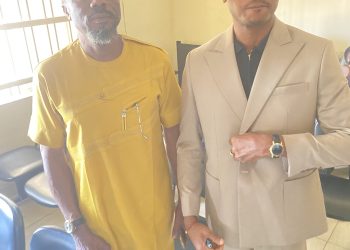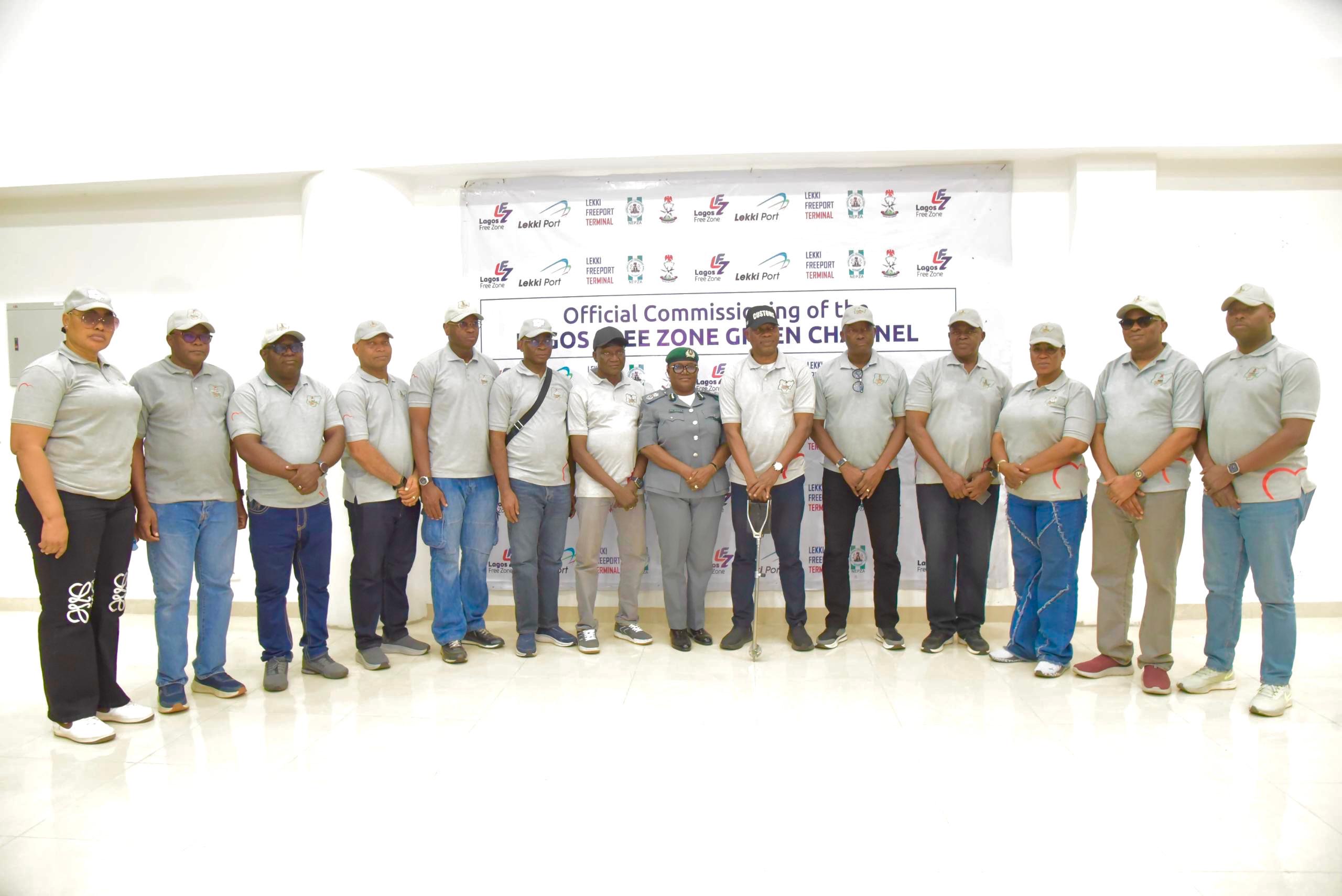By Nkechi Eze
As Nigeria joined the rest of Africa to commemorate the 2025 African Union Anti-Corruption Day, the Executive Chairman of the Economic and Financial Crimes Commission (EFCC), Mr. Ola Olukoyede, issued a stern warning to Nigerians against negligence in investment decisions, highlighting the alarming rise in virtual asset and investment fraud across the continent.
Speaking in Abuja on Thursday, July 10, 2025, at a public lecture held at the EFCC Headquarters themed “Understanding Virtual Asset and Investment Fraud,” Olukoyede emphasized that investor recklessness and failure to conduct due diligence have significantly contributed to the proliferation and success of fraudulent schemes in the country. He pointed to the CBEX investment scam as a case in point, where many Nigerians lost large sums of money due to blind trust and poor scrutiny of the operators’ claims.
“Understanding virtual assets and investment fraud will not be complete without drawing serious attention to the role of the investing public in breaking the opportunistic practices of fraudsters floating various schemes to defraud Nigerians,” Olukoyede declared. “We are all aware of the hues and cries of many investors in CBEX that lost their funds to the shenanigans of the operators. This unfortunate situation is preventable.”
He noted that one of the key lessons from the CBEX scandal is that fraudulent practices are often aided, albeit inadvertently, by investors themselves through failure to verify the legitimacy of schemes presented to them. “Investors hardly send suspicious transaction reports to the EFCC until they are defrauded. We must understand that no investment scam can succeed without the negligence of investors,” he said.
The EFCC chairman further decried the growing trend of politicians and criminal elements using cryptocurrencies and other digital assets to hide and launder illicit wealth. “Our findings showed that fraudulent politicians are already perfecting schemes and hiding their loot in cryptocurrencies to beat the investigative dragnets of anti-corruption agencies,” he said. “Stolen funds and unexplained wealth are being warehoused in wallets and payments for services are being done through this window. Investment schemes are also being facilitated through it.”
While affirming that cryptocurrencies and digital assets were not inherently criminal, he cautioned that they are increasingly being deployed for illicit purposes. “Virtual assets are not fundamentally criminal. It is when they are wrongfully or fraudulently used that they become criminal,” Olukoyede stated. “The advent of virtual assets is a response to one of the qualities of money as a store of value. However, as with every progressive innovation, fraudsters usually evolve ways of perverting their genuine purposes.”
He assured Nigerians that the EFCC is equipped and committed to tackling the menace. “For us at the EFCC, virtual assets fraud and investment scam are not hard nuts to crack. Proactive and broad-based training and intelligence are bringing fraudulent schemes to the fore,” he said, citing the agency’s successful breakthrough in the CBEX scam investigation and prosecution.
Also speaking at the event, Governor of the Central Bank of Nigeria (CBN), Mr. Olayemi Cardoso, represented by Deputy Governor, Economic Policy, Muhammad Sani Abdullahi, provided insight into the exponential rise of digital financial transactions in Nigeria and their associated risks. “In Nigeria, over $56 billion in crypto-related transactions were recorded between July 2022 and June 2023, making us Africa’s digital transaction leader. But this growth is not without consequences,” he said.
Cardoso revealed that the CBN Financial Stability Report for 2024 documented a 45% increase in financial fraud cases, with a staggering 70% of losses linked to digital channels, including unregulated virtual asset platforms. “Over 30 Ponzi-style investment schemes exploiting digital currency narratives have been flagged by the SEC and other agencies,” he said, warning that these developments pose grave risks to consumer confidence, national financial integrity, and Nigeria’s international reputation.
The Director General of the Securities and Exchange Commission (SEC), Emomotimi Agama, also addressed the audience, describing corruption as a major barrier to Africa’s development. He stressed that the digital transformation of the global financial ecosystem has heightened the risks of fraud. “Corruption remains a significant impediment to Africa’s economic growth, social development, and investor confidence,” he said. “Today, as digital innovation transforms financial systems, we face new challenges, particularly the rise of virtual asset fraud and sophisticated investment scams, exploiting unsuspecting investors.”
Agama reaffirmed the SEC’s commitment to investor protection through education, evolving regulatory frameworks, and international cooperation. “We are strengthening investor education on recognizing and avoiding fraudulent schemes; enhancing regulatory frameworks to keep pace with evolving risks in virtual assets and digital investments; and fostering cross-border collaboration to combat corruption and illicit financial flows,” he said.
Malam Lanre Issa-Onilu, Director General of the National Orientation Agency (NOA), praised the EFCC’s relentless pursuit of justice and its efforts in shielding citizens from digital financial crimes. “Experience has shown that deception is foundational to fraud and if its impact goes far deeper, it undermines citizens’ confidence in their country,” he said. “Every Naira lost to fraud causes far-reaching effects. It is about a child pulled out of school, a livelihood ruined, and an enterprise destroyed.”
He revealed that the NOA had launched a nationwide campaign several months ago aimed at discouraging the get-rich-quick mindset among young Nigerians. “At the National Orientation Agency, we believe that value orientation is our most powerful tool. The campaign is helping Nigerians understand that lasting success comes from honesty and hard work,” Issa-Onilu said.
The Registrar General of the Corporate Affairs Commission (CAC), Hussaini Ishaq Magaji, also spoke on the typology of virtual asset crimes. “Virtual assets, while offering significant opportunities for economic growth, also present new and complex avenues for fraud, money laundering and financial manipulation,” he said. He reiterated CAC’s ongoing collaboration with the SEC and other regulators in tightening corporate governance and financial transparency frameworks.
The thematic paper of the day was presented by ACE11 Dein Whyte, Head of the EFCC’s Cybercrime Section. He offered detailed definitions of virtual assets as “digital representations of value used for transactions, investments, or as a medium of exchange,” explaining the distinction between digital assets and fiat money. Whyte’s presentation outlined the types of virtual assets cryptocurrencies like Bitcoin, Ethereum, and Ripple, as well as non-fungible tokens and highlighted telltale signs of fraudulent investment ventures to aid public awareness.
Following the presentation, a robust question-and-answer session took place, allowing participants to share experiences, seek clarifications, and suggest strategies to curb virtual asset-related fraud.
The lecture in Abuja was mirrored by discussions and presentations across all EFCC Zonal Directorates nationwide as part of a coordinated effort to spotlight the dangers of virtual asset and investment fraud. It underscored the EFCC’s determination to raise public awareness, enhance inter-agency synergy, and equip Nigerians with the tools to avoid becoming victims of an increasingly sophisticated fraud landscape.














